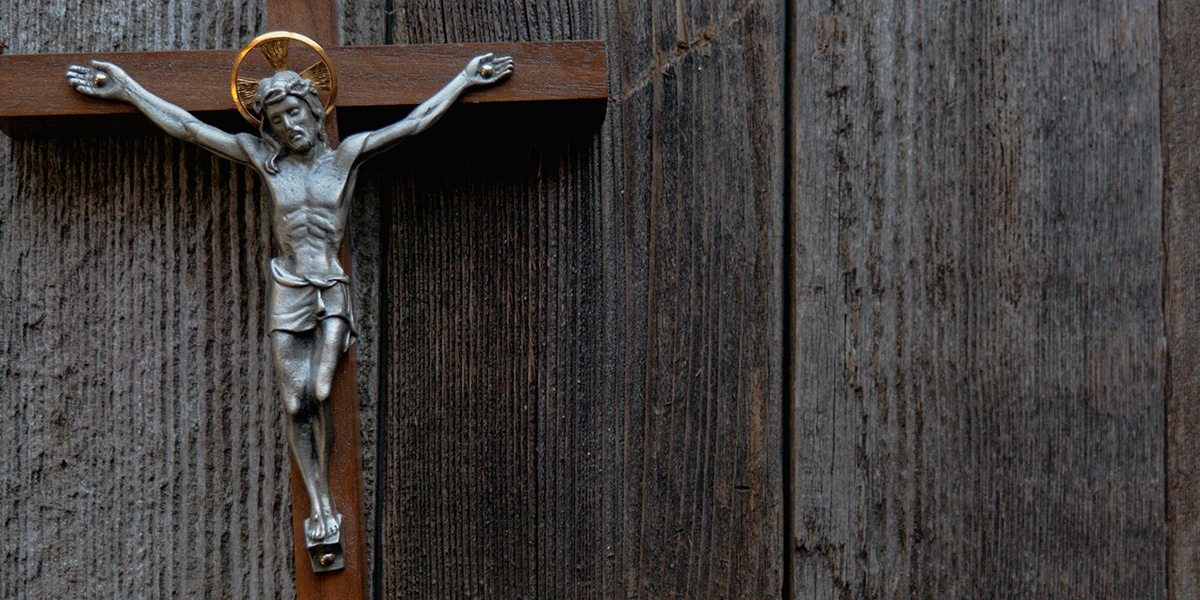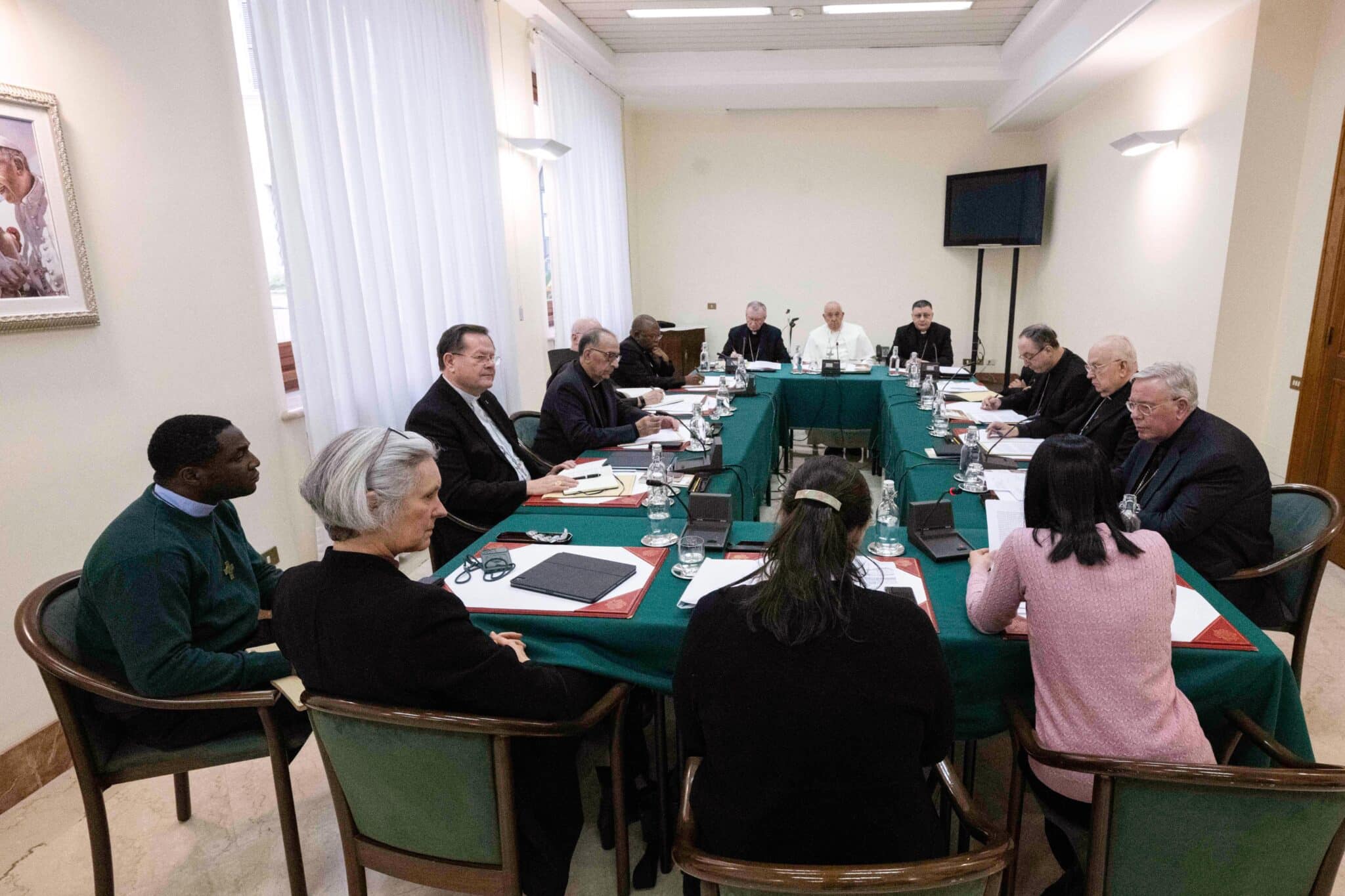In Lent, we find both the challenge and the opportunity to look inward, acknowledge our shortcomings, and ask for God’s pardon so that we may more fully embrace our loving Creator.
As we enter Lent, we are reminded that we are “dust to dust” and “ashes to ashes.” After a year full of sorrows such as the separation of families at the US border, destructive wildfires, mass shootings, war and famine in Yemen, refugees fleeing Syria, and much of the world’s suffering that frequently goes without notice if it is not in our own backyard, I am ready for a season of somber humility. Lent offers an invitation, as is our faith’s custom, to pray, to say I am sorry, and to go hungry once in a while knowing that others do so often. And I do so with genuine grief—but not without hope.
Coming on the heels of a season of joyous festivity, from Christmas and New Year’s to Mardi Gras, Lent is an opportunity to cleanse the palate so that we can taste all—the bitter and the sweet. This season calls us to witness the good and the bad—and to own our own responsibility and potential for being agents of both.
Whether we contribute to suffering through our human capacity for making mistakes and selfishness or experience pain and loss as one of earth’s vulnerable creatures, we must also see the other side of things, the yes/and of living this life. While we are capable of doing so much harm, we also are gifted with the power to be and act in ways of compassion and to receive the abundant blessings of a benevolent God.
Lent is about looking deeply within and simultaneously experiencing gravity and wonder. In my book Wondrous Encounters: Scripture for Lent, I describe the invitation to know ourselves and God more fully: There are two moments that matter. One is when you know that your one and only life is absolutely valuable and alive. The other is when you know your life, as presently lived, is entirely pointless and empty.
You need both of them to keep you going in the right direction. Lent is about both. The first such moment gives you energy and joy by connecting you with your ultimate Source and Ground. The second gives you limits and boundaries, and a proper humility, so you keep seeking the Source and Ground and not just your small self.
Human and Divine
St. Teresa of Avila said that we find God in ourselves, and we find ourselves in God. Authentic spirituality seeks to facilitate this knowing of self and God. I believe that only when humans realize and embrace their wholeness—their smallness and their greatness at the same time—will there be any in-depth transformation.
Lent is about being human and divine. Though we are made of dust, we are called to participate in the divine creative dance.
Jesus showed us how to walk the human-divine path through self-emptying. It is the journey of death and resurrection, with life taking ever new shapes and forms. Even as we face our little ego deaths, we trust that resurrection inevitably follows if we walk through fall and winter. New beginnings invariably come from old falsities that are allowed to die. We know that the story ends in resurrection. After Lent, Easter! Weeping may endure for the night, but joy comes in the morning (Ps 30:6).
Author Cynthia Bourgeault wrote in her book The Holy Trinity and the Law of Three: “Don’t be afraid of darkness, of the things that look like they’re going in the wrong direction. The soul has to go through this overwhelm. So often I realize the difficulty was exactly the thing that needed to happen in order for there to be clarity.” Trust that even when it seems our world is moving backward—away from justice and peace—this friction can help us discover a new way forward.
Desire to be Transformed
The word Lent comes from the Old English lencten, or springtime. Resurrection is not a one-time anomaly in the body of Jesus, but the pattern of reality. The Trinitarian flow is mirrored in every atom and circulatory system, the change of seasons and substances, and all the orbits and cycles of the stars, planets, and galaxies. We are a dynamic universe echoing a very dynamic God.
Most of us were taught that God would love us if and when we change. In fact, God loves us so that we can change. Loved people have the courage and the energy to imagine new things. The experience of being loved creates in us the desire to be transformed. Yes, even the desire is a gift.
Even as I rub ashes on parishioners’ foreheads and do my own deep shadow work, I am also grateful, remembering and anticipating transformation. I celebrate the moments and undergirding constancy of Grace. I give thanks for the people and things that have touched me with love, that have nurtured my True Self. I pray you, too, may know how absolutely valuable you are within the context of the bigger Life and Love.
This Ash Wednesday, we will hear again that we are “dust to dust” and “ashes to ashes.” Each moment is precious. How will you spend these 40 days? The rest of your life? We must not stop the flow, but we must give mercy away as freely as it comes to us—so that it multiplies and spreads to many others. How might you be a conduit for mercy in this season of Lent? What practices could help you clear the channels of heart, mind, and body, to let love flow more freely through you and from you?
Thank you for being part of this journey, for not losing heart or giving up, but choosing hope. Thank you for doing the hard task of facing shadows, both within and without, and bringing them to Love’s light. Thank you for being dust and ashes whose DNA holds Divine Presence—you can’t help it; it’s who you are!—and carrying this responsibility with humility and joy.








